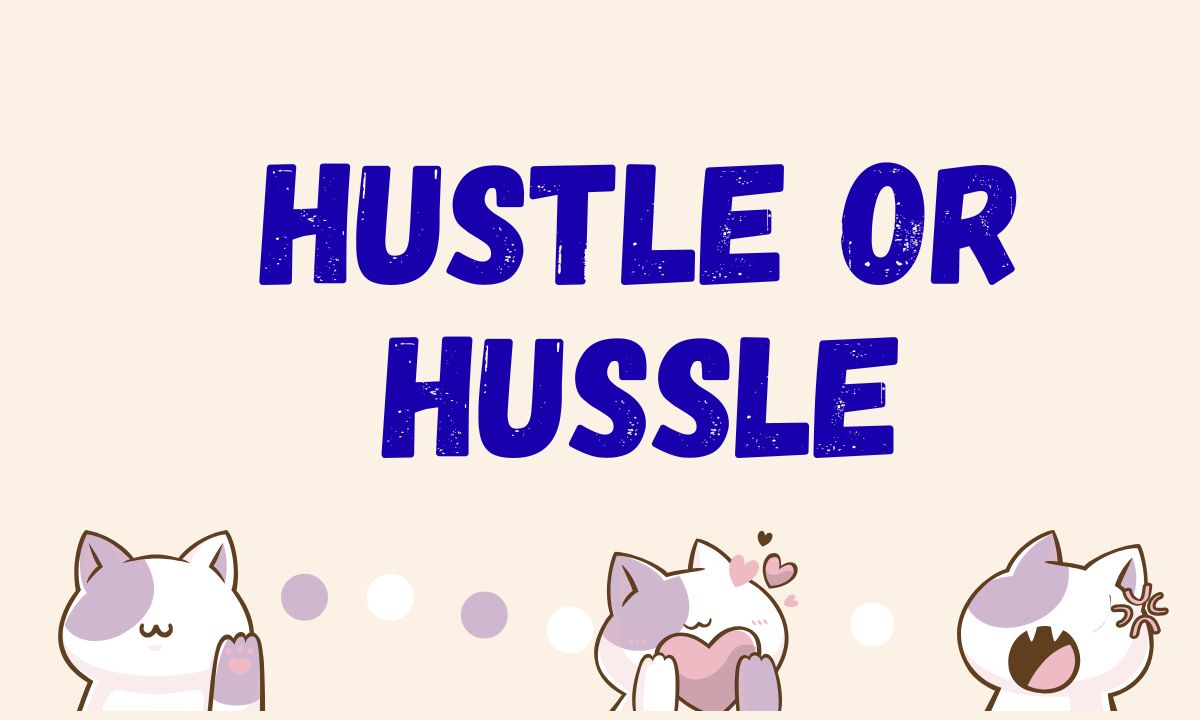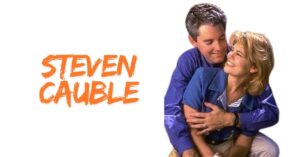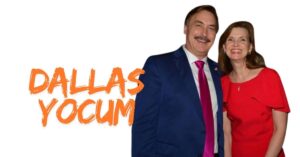Hustle or Hussle which is the right spelling? Many English learners and even native speakers often confuse these two words. The truth is, only “hustle” is correct. The spelling “hussle” is a common error or a stylized version used in pop culture, mainly because of rapper Nipsey Hussle, whose name is an intentional misspelling.
The word hustle means to work hard, move fast, or act energetically. Over time, it has evolved from its 17th-century Dutch origin “husselen” into modern expressions like hustle culture. In this guide, we’ll explore every aspect from definitions and etymology to usage, cultural meaning, and real-life examples.
Understanding the Difference Between Hustle and Hussle
The primary distinction between hustle and hussle lies in correctness and context. Hustle is a legitimate English word listed in Cambridge, Oxford, and Merriam-Webster dictionaries. It functions as both a noun and a verb, representing speed, effort, or determination. For example, “She hustled to finish her assignment on time.”
On the other hand, hussle is not recognized in formal English. It appears mainly due to typographical mistakes or artistic variations. The most famous instance is Nipsey Hussle, whose name symbolizes motivation and perseverance, not a grammatical form. Therefore, in writing, always use “hustle” for accuracy, and reserve “Hussle” when referring to the rapper’s name or brand identity.
Hustle: Definition, Forms, and Examples
Hustle has multiple uses in English both literal and figurative. As a verb, it means “to move quickly or push forward energetically.” As a noun, it refers to intense activity or effort. In modern culture, hustle embodies ambition and productivity, often linked with phrases like “hustle culture” or “side hustle.”
| Form | Definition | Example Sentence |
| Verb | To move fast or work hard | “You must hustle if you want success.” |
| Noun | Energy, effort, or busy activity | “Life in New York is full of hustle and bustle.” |
People often use hustle to describe entrepreneurs or goal-oriented individuals who stay focused, determined, and productive in their daily routines.
Hussle: Definition, Context, and Correctness
Unlike hustle, hussle does not appear in any official English dictionary. It’s simply a misspelling that gained recognition through pop culture. The best-known reference is Nipsey Hussle, the Grammy-winning American rapper (1985–2019).
His name was inspired by comedian Nipsey Russell and the slang hustle, symbolizing dedication and persistence. However, outside of names, hussle has no formal usage in grammar, writing, or speech.
When learning English, remember this rule:
“There’s no extra ‘s’ in success and no extra ‘s’ in hustle.”
Use hussle only in proper nouns; otherwise, it’s grammatically incorrect.
Etymology and Historical Background
The word hustle traces back to the Dutch word “husselen”, meaning to shake or move rapidly. It entered English during the 17th century, describing quick movement or pushing with force. Over time, it evolved beyond physical motion, symbolizing energy, determination, and effort. In the 21st century, hustle gained a new dimension the “hustle culture.”
This cultural shift celebrates productivity, entrepreneurship, and ambition but sometimes leads to burnout. From being a word about motion to representing an entire mindset, hustle continues to reflect modern society’s admiration for hard work and persistence. Linguistically and culturally, it’s a word that has evolved with human ambition.
Hustle in Modern Culture
Today, the term hustle goes beyond dictionary meaning it defines a lifestyle. Social media platforms glorify hustle culture, encouraging people to work non-stop toward their dreams. However, while ambition is valuable, balance remains essential. Studies, such as the 2020 Indeed survey, show that 52% of workers experience burnout from constant hustling. This statistic highlights how modern life often confuses productivity with overexertion.
Despite that, hustle also represents creativity, self-growth, and perseverance. Entrepreneurs, freelancers, and students all embrace the hustle mindset to stay motivated. So while hustling is important, it’s equally crucial to rest, recharge, and maintain mental well-being.
Side-by-Side Comparison: Hustle vs Hussle
| Aspect | Hustle | Hussle |
| Correctness | ✅ Standard English word | ❌ Misspelling |
| Dictionary Entry | Found in all major dictionaries | Not recognized |
| Meaning | Work hard, move fast | None (except proper name) |
| Usage | Noun/Verb | Proper noun only |
| Example | “She hustled for success.” | “Nipsey Hussle inspired many.” |
From this table, it’s clear that hustle is grammatically and semantically correct, while hussle belongs to the world of branding and music.
Everyday Usage Examples
Here are some real-world examples showing how to use hustle correctly:
- “He hustled to meet the project deadline.”
- “Her hustle paid off when she got promoted.”
- “The city’s hustle and bustle never stops.”
- “Entrepreneurs thrive on daily hustle.”
- “Don’t confuse hustle with stress work smart, not hard.”
In contrast, using hussle in these sentences would be incorrect and reduce professional credibility. Whether you’re writing an essay, email, or blog, choose hustle for correctness.
Case Study: Hustle Culture in the 2020s
A practical look at modern “hustle culture” reveals both positive and negative aspects. Many people admire the idea of working relentlessly toward success the “grind” mentality. According to a 2020 study, about 70% of young professionals associate “hustling” with personal growth and financial independence.
However, over 50% admit feeling overwhelmed by constant productivity pressure.
This duality shows that while hustle motivates people, excessive emphasis can lead to burnout. Smart hustling involves balance working efficiently, setting goals, and resting adequately. As the saying goes:
“Hustle with purpose, not exhaustion.”
How to Remember the Correct Spelling
The quickest trick to avoid confusion is this:
“One ‘s’ is for success; two ‘s’s’ is a mistake.”
Remembering this phrase ensures you never misspell hustle. Another helpful hint: hustle contains the same rhythm as bustle, a related word meaning busy activity.
When in doubt, check reliable sources like Cambridge Dictionary or GrammarPalette.com, which clearly list hustle as the correct form. Practicing correct spelling helps improve both writing quality and professional communication.
Common Mistakes and Corrections
| Incorrect Sentence | Correct Sentence |
| “She loves his hussle attitude.” | “She loves his hustle attitude.” |
| “They are hussling to meet targets.” | “They are hustling to meet targets.” |
| “Hussle culture is toxic.” | “Hustle culture is toxic.” |
These examples show how a single extra letter can change the accuracy of your writing. Always proofread for spelling consistency, especially in formal or business communication.
Conclusion
In summary, when it comes to Hustle or Hussle, the choice is clear “hustle” is correct. It’s a powerful English word representing energy, determination, and ambition, rooted in 17th-century Dutch origins. Conversely, “hussle” is an incorrect spelling used mainly in pop culture, most notably by Nipsey Hussle.
Remember, language precision reflects professionalism. So, whether you’re talking about your side hustle, daily grind, or work ethic, use the correct form Hustle and let your words convey accuracy and confidence.
FAQs About Hustle or Hussle
What is the correct spelling Hustle or Hussle?
The correct spelling is “hustle.” It’s a valid English word meaning to work hard, move quickly, or act energetically. The word “hussle” is a common misspelling that is not recognized in standard dictionaries.
Why do some people spell it as Hussle?
People often write “Hussle” because of Nipsey Hussle, the American rapper who intentionally used this variation of the word hustle as his stage name. However, outside his name, “hussle” is incorrect in English grammar.
Where did the word Hustle come from?
The word hustle originates from the 17th-century Dutch word “husselen,” which means “to shake or move quickly.” Over time, its meaning evolved to describe energetic activity or determined effort in English.
Is Hussle ever correct in writing?
No, “Hussle” is not correct in formal writing or grammar. It is only acceptable as a proper noun, such as in the name Nipsey Hussle. In every other case, use the standard spelling “hustle.”
What does hustle mean in modern culture?
In today’s world, hustle often means working hard to achieve goals or maintaining a strong work ethic. It’s closely linked to entrepreneurship, side gigs, and self-motivation, forming what’s known as hustle culture.
How do you remember the correct spelling of hustle?
A simple trick is:
“There’s no extra ‘s’ in success — and no extra ‘s’ in hustle.”
This helps you recall that the correct form has only one “s.”
Is Hustle a noun or a verb?
The word hustle can be both a noun and a verb.
- As a verb: “He hustled to finish the job.”
- As a noun: “Her hustle inspired everyone.”
It describes movement, energy, or effort in both forms.
What’s the difference between Hustle and Bustle?
Both words express movement and activity, but they differ slightly:
- Hustle means energetic work or determination.
- Bustle refers to busy, noisy activity or a lively environment.
Example: “The hustle and bustle of the city never ends.”
What is hustle culture and is it good or bad?
Hustle culture promotes constant productivity and hard work. While it encourages growth and ambition, it can also lead to stress and burnout if balance is ignored. The key is to work smart, not just hard.
Can I use Hussle as a name or brand?
Yes, Hussle can be used as a brand or artistic name, just like Nipsey Hussle did. However, it’s not grammatically correct as a regular English word, so avoid using it in formal or academic writing.








